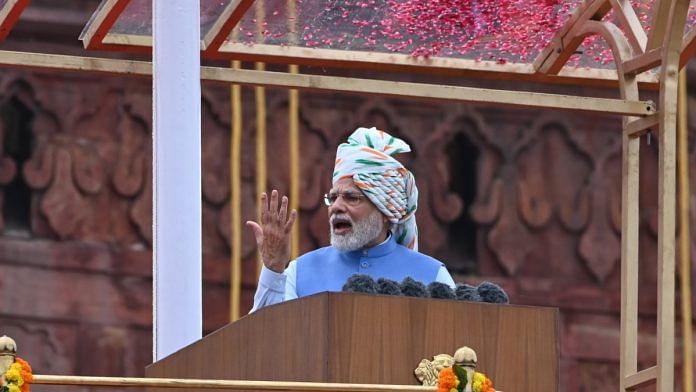We just celebrated 75th Independence Day, and it is a good occasion to look back and ponder over how the journey has been and where we are heading. The struggle for freedom was a prolonged movement of all sections of society with the belief that a better world was not only possible but also within reach in the near future. This idea of freedom demanded innumerable martyrdoms and sacrifices of the highest order, which the people of India promptly made. Thus, our edifice of liberty stands today on the foundation of sacrifices by those who sat in Jallianwala Bagh, those who took to the streets during the Quit India movement, those who went to prisons during the ‘Jail Bharo Andolans’ and all other people who participated in various similar activities. Three-quarters of a century later, we now stand at a crucial juncture where the ideals of our founding fathers are being challenged by belligerent forces regularly to upend the idea of India and turn it into a hostile and exclusive society, not based on love but hate.
The central discourse in the Indian political sphere seems no longer concerned about the marginalised and the downtrodden and the idea of ‘Antyodaya’ has been essentially reduced to an election gimmick. India’s unsettling performance on metrics like the Global Hunger Index and the Human Development Index is a testimony to the same. To further exacerbate the penury of the already impoverished level of discourse, communal issues are being introduced and fault lines are being scratched to make the idea of India bleed to death. Secularism is being pushed as a negative term into the collective understanding of the dominant community, as something which has been a historical wrong against them. These developments are nothing short of fatal blows to the idea of India.
Another cause of worry is the weakening of institutions. The mainstream media as a social institution has been failing us. The TRP-driven news coverage has pushed for the emergence of news reporting which is not only unethical but also counter-productive as it causes the substantial issues demanding attention, to remain hidden. Justice, too, is moving further away from the reach of common Indian citizens. This crisis in the legal system has been brought to public attention by the judges themselves. Retired Justice Deepak Gupta pointed this out during his farewell speech, where he said that the legal system of the country is geared in favour of the rich and powerful. The pendency of cases is also a serious crisis plaguing the judiciary. As of May 2022, there are 4.7 crore pending cases across different levels of the judiciary.
The stifling of dissent and heavy-handed actions of the state are again developments that don’t bear any positive connotation for the Indian republic. Draconian laws like UAPA have been used liberally by the state to mute voices of resistance and concomitantly make criticism of the government the same as criticism of the country. The opposition forces are portrayed as inimical to national interests, leading to a further weakening of the Indian democracy. All this breeds fertile ground for the rise of a majoritarian state, devoid of the values proposed and upheld by our freedom fighters. It wouldn’t be less patriotic of an act to acknowledge that the gains made on the eve of Independence stand threatened at present, with forces of divergence having the upper hand.
Also read: Held for chats on ‘threats to Islam’, jailed under UAPA, how Maharashtra man got bail after 6 yrs
Despite this, there has been a rise in the assertion of rights and people’s movements. The spectacular resistance shown by the farmers in the farmers’ protest has re-kindled the spirit of the resistance in the general populace. With effectively no opposition in parliament, the streets have emerged as an alternative force to counter the rise of autocratic tendencies in the government. Another positive development has been the growth of alternative electronic media platforms like online news portals and fact-checking websites, which are fulfilling the role of the media, the fourth pillar of democracy.
Edward Abbey, an American activist, said, “A patriot must always be ready to defend his country against his government.” As we enter into the final quarter of the century of independence, only the people can determine India’s destiny. Their vigilance at this stage to protect the idea of India against communal, casteist, and chauvinistic forces is needed, while also ensuring the accountability of the government. The onus is on us to protect the idea of India and not let the aspirations of freedom fighters continue to be a pipe-dream.
The author is a student at Dr Ram Manohar Lohia National Law University, Lucknow.



